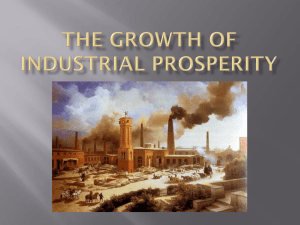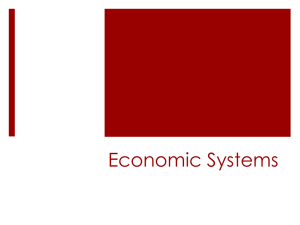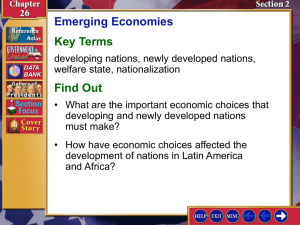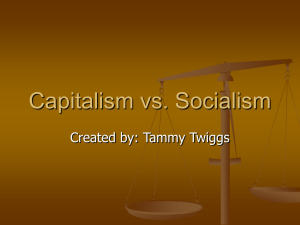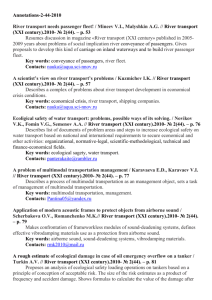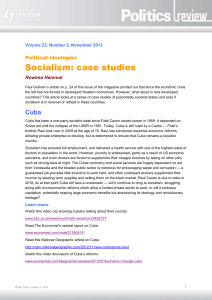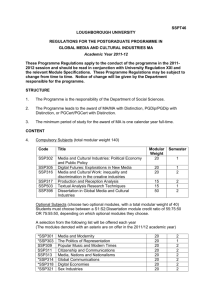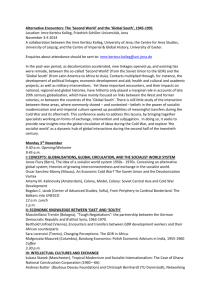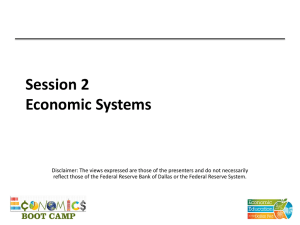En busca de la Ciudad Socialista del Siglo XXI
advertisement
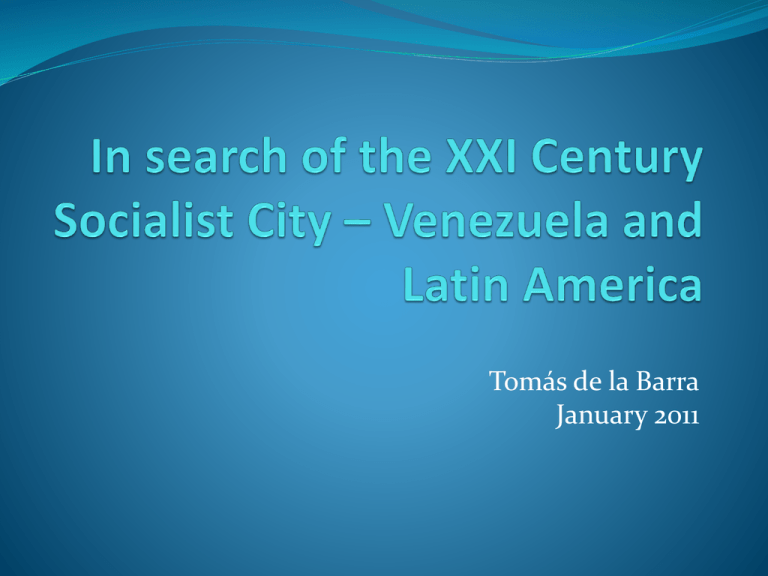
Tomás de la Barra January 2011 Content What is the XXI Century Socialism? Cities of Latin America: the legacy of the Capitalist system The XXI Century Socialist City Technologies to support the Socialist City What is the XXI Century Socialism? Many countries in Latin America have abandoned the neo- liberal model towards a socalist orientation (Venezuela, Bolivia, Ecuador, Nicaragua, Brazil, Argentina…) The term ‘XXI Century Socialism’ is emerging as a new model that must be constructed. In Venezuela everyone agrees that this is the model to be pursued, but most leaders admit the the concept has yet to be defined. The ‘centralised ’ (totalitarian?) model that prevailed in the Real Socialism of the XX Century is definitely not favoured. What is the XXI Century Socialism? The cuban model with more emphasis on participation (bottom up) points to the right direction, but does not go as far as current expectations. The new model must be fully democratic and provide ample space , channels and networks to participation. Keywords in the current debate are: protagonistic and participatory democracy, as against representative democracy. Communal state The communal state is another related concept that is emerging with considerable force The 1999 Constitution of Venezuela created the ‘Concejos Comunales’ as a local entity organizing the people and providing direct control over events. Tenths of thousands such ‘Concejos Comunales’ have been created and are increasingly protagonsitic. Concejos Comunales’ hace their own independent and elected authorities and their own budgets and banks Several ‘Concejos Comunales’ may join in the form of ‘Comunas’, and this will have an impact on cities as well as rural areas. Cities of Latin America: the legacy of the Capitalist system Over 100 years of capitalism has shaped the cities of Latin America in several ways, apart from the obvious problems in the social structure. It has become obvious that the private sector cannot resolve the most fundamental problems in our cities: housing, transport and the environment. ‘Marginal areas’ dominate the urban landscape (47% in Caracas) with the unending chain of problems, severely affecting the quality of life of mid and low income population The private sector concentrates on favourable market conditions, usually in the periphery, promoting urban sprawl and cardependency, and a lack of equilibrium between work and residence at all social levels. Cities of Latin America: the legacy of the Capitalist system In Venezuela this has resulted in a gigantic housing deficit. The immediate deficit in the country is estimated about a million dwellings, with 300,000 in Caracas only. Immediate deficit is the number of dwellings that are required to replace those that face high risks in terms of flooding (seismic risk is much larger) The demand grows at a rate of 2.1% approx. This means that the country should build at a rate of 200,000 a year at least, while only 35,000 are being built by both public and private sectors. The XXI Century Socialist City The concept of a Socialist City is also not very well defined, but new ideas are emerging to shape sustainable urban development. Emphasis is shifting from just physical sustainability towards social sustainability in a much broader sense. The replacement of the price mechanisms that prevail in capitalism must be replaced by planning and the direct action of the government and communities The current trend towards urban sprawl is accompanied by the decay of central areas that are left behind with low intensity of occupation. The gap between places of work and services and places of residence grows constantly. This increases the need for transport, increasing congestion and pollution, with little hope that new transportation facilities and increased capacity may be built at the same rate. The XXI Century Socialist City To revert this trend, the idea of urban renewal is coming back after decades of negligence. This means that society must recover the control over the urban structure, away from the private sector. Urban renewal means that large portions of centrally located parts of a city is re-built at a much higher intensity and efficiency. Urban renewal can be much more efficient than large projects of transport infrastructure Efficient public transport, such as BRT are also a policy with good possibilities. Just like the market failed to solve the housing problem, it also failed to solve the transportation problems. Technologies to support the Socialist City ¿Qué relación tiene esto con la modelación integrada de usos del suelo y transporte? Mucho. Este tipo de herramienta analítica es precisamente la que debe ser utilizada para evaluar las nuevas concepciones de política urbana. Plantea un componente muy importante en el debate acerca del SSXXI: cómo las nuevas tecnologías hacen realista un socialismo que antes fue utópico.
